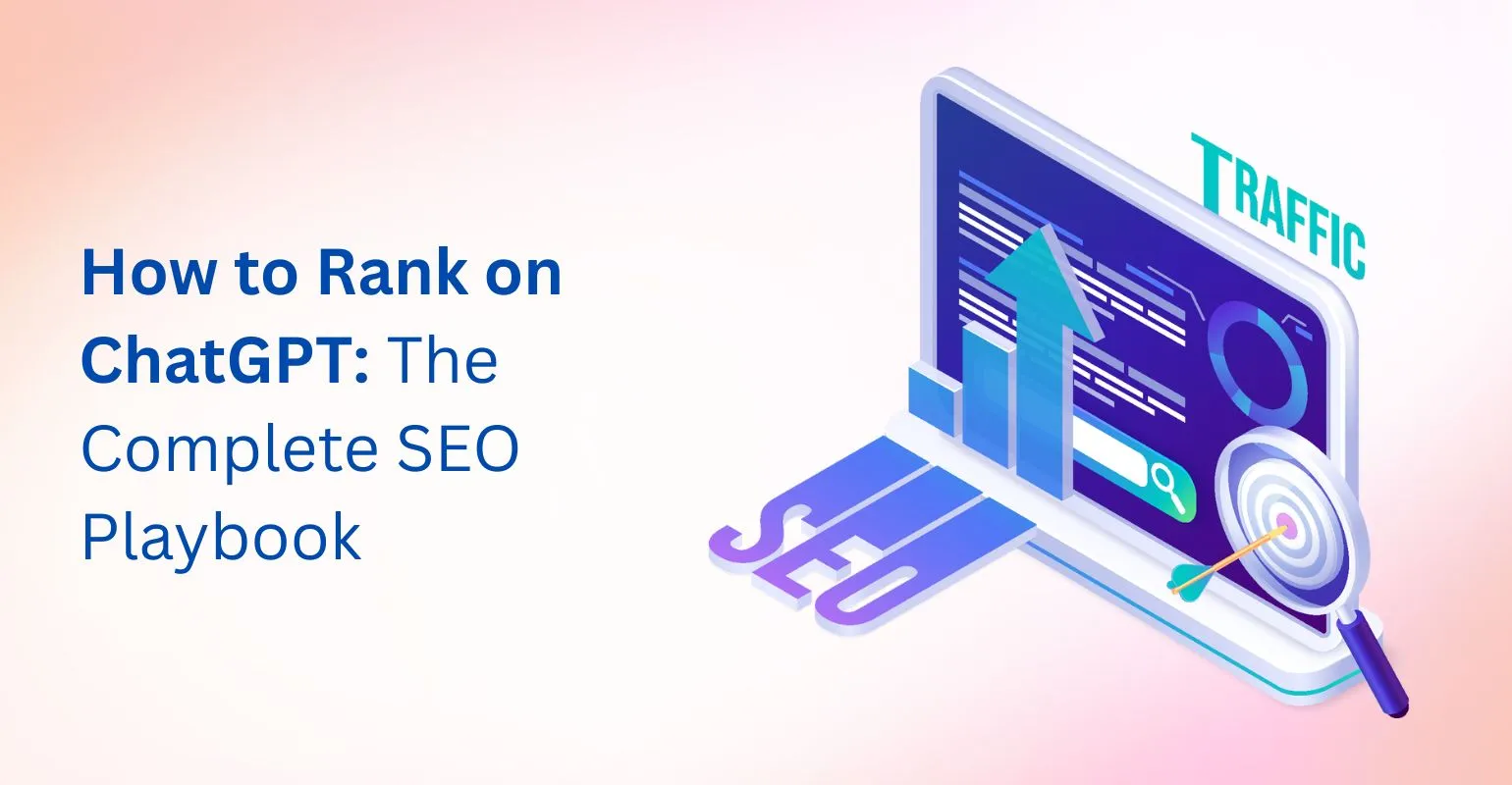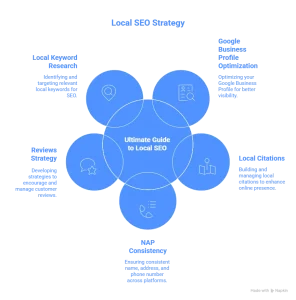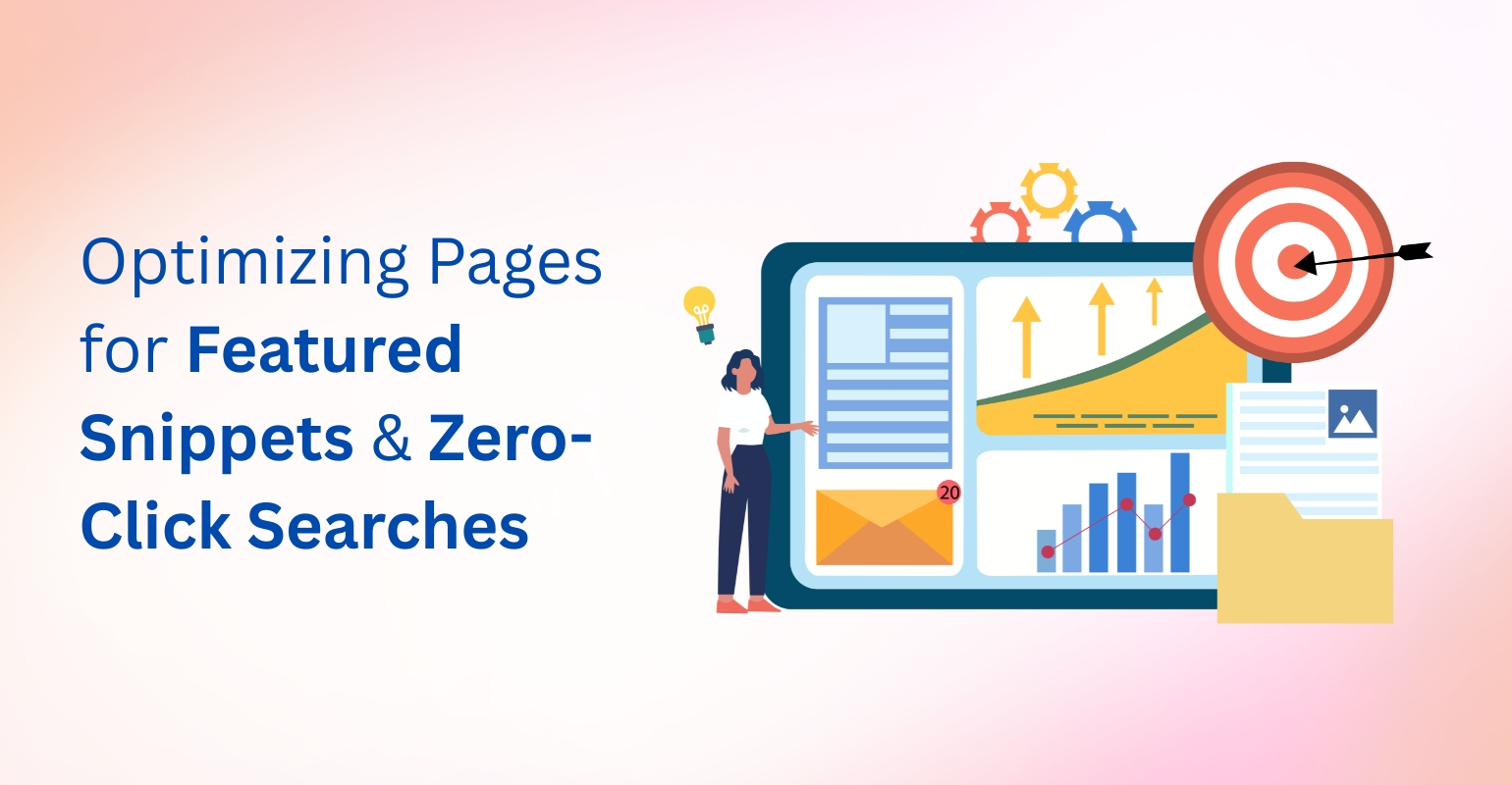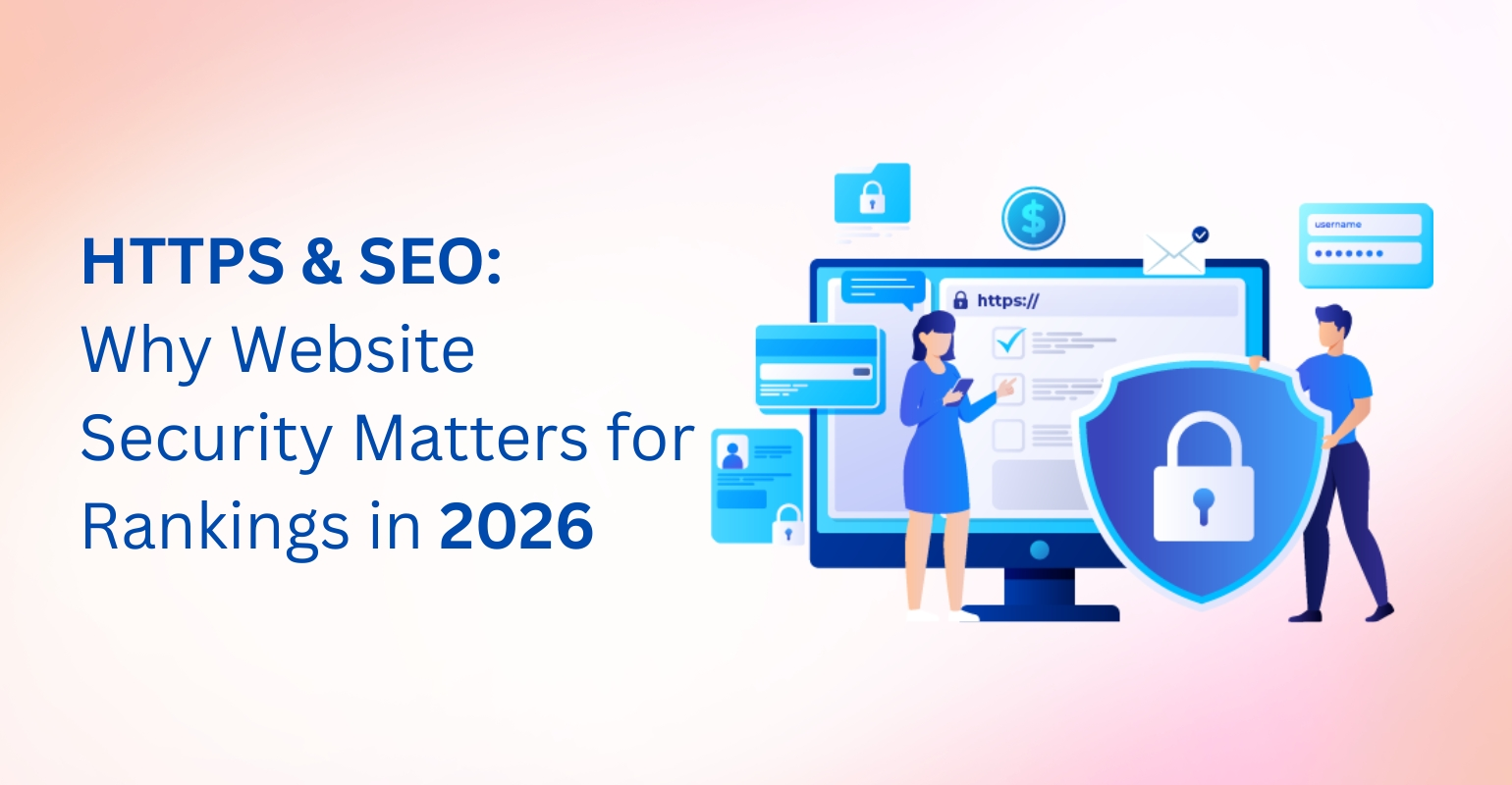blog
How to Rank on ChatGPT: The Complete SEO Playbook

AI is changing how people search for information. Instead of typing queries into Google, millions are now asking ChatGPT questions like:
- What are the best SEO tools for small businesses?
- How do I start a podcast?
- Which marketing strategies work for startups?
And here’s the game-changer: if your content doesn’t show up in ChatGPT’s answers, you are invisible to a growing slice of your audience.
That’s why knowing how to rank on ChatGPT has become the new SEO frontier. In this guide, I’ll break down the exact steps you need to take to make your content visible when users turn to ChatGPT for search-like queries.
Let’s dive in.
Why Ranking on ChatGPT Matters
Here’s a simple truth: ChatGPT is the “Google alternative” for millions. In fact, surveys show that more than 20% of users now prefer to ask ChatGPT instead of Googling, especially for how-to guides, product recommendations, and quick summaries.
Unlike Google, ChatGPT doesn’t crawl the web live. Instead, it pulls from:
- Its training data
- Trusted sources it’s reinforced on
- And sometimes Bing (with browsing enabled)
So, if you want your content to rank on ChatGPT, you need to optimize it in ways that make it:
- Authoritative (so AI recognizes you as a trusted voice)
- Structured (so AI can easily parse and summarize it)
- Comprehensive (so your content gets cited in answers instead of skipped)
| Factor | Traditional SEO | AI SEO |
|---|---|---|
| Ranking Mechanism | Based on live Google crawling | Based on AI training data + reinforced sources |
| Content Focus | Keywords, backlinks, on-page | Authority, structure, and entity recognition |
| Optimization Style | SERP ranking | AI visibility and summarization |
| Key Strategy | On-page + Technical SEO | Topical authority + Schema + E-E-A-T |
| Tools Used | Google Search Console, Ahrefs | ChatGPT, Bing Copilot, Perplexity, MarketMuse |
7 SEO Strategies that Actually Work
1. Build Topical Authority with Content Clusters
One of the biggest factors in how ChatGPT picks sources is authority within a topic.
Think about it: if you have one blog about backlinks and your competitor has an entire library of 15+ in-depth posts about link building strategies, anchor text, outreach templates, and guest posting, who do you think ChatGPT will favor?
The competitor. Every time.
That’s why you need to build content clusters around your niche.
Here’s how to do it:
- Pick a core topic (like “local SEO”).
- Create a pillar page (ultimate guide to local SEO).
- Surround it with supporting blogs (Google Business Profile optimization, local citations, NAP consistency, reviews strategy, etc.).
- Interlink everything.
This tells search engines and ChatGPT:
“Hey, this site isn’t just dabbling in local SEO. They OWN this topic.”
The result? Your chances of being summarized in ChatGPT’s answers skyrocket.

Image Source: Created using Napkin AI.
Visual representation of a content cluster: the pillar page ‘Ultimate Guide to Local SEO’ at the center, with supporting blogs branching out to build topical authority and strengthen SEO.
2. Optimize for E-E-A-T (Expertise, Experience, Authoritativeness, Trustworthiness)
ChatGPT isn’t perfect but it’s designed to favor credible, authoritative sources. That’s why you’ll often see it referencing big names like HubSpot, Harvard, or McKinsey in its answers.
So, how do you compete? By leveling up your E-E-A-T signals.
Practical steps:
- Add author bios that highlight credentials and real experience.
- Cite original data, research, or case studies (AI loves summarizing stats).
- Include outbound links to trusted references (industry reports, academic studies).
- Publish testimonials, reviews, and client case studies to show real-world expertise.
For example, instead of writing “backlinks improve SEO rankings”, you’d write:
“According to a 2024 Ahrefs study analyzing 1 billion pages, sites with strong backlink profiles ranked 80% higher in Google and AI tools like ChatGPT often summarize this data when discussing SEO strategies.”
That’s the kind of authority-driven content ChatGPT loves to pull into its answers.
3. Use Structured Data & Schema Markup
Here’s a little-known trick: AI models like ChatGPT often rely on structured content to generate clear answers.
That’s where schema comes in.
By adding schema markup to your site, you make it machine-readable. It’s like handing ChatGPT a cheat sheet of what your content means.
Types of schema to use:
- Article schema → for blogs and guides
- FAQ schema → for question-based content
- HowTo schema → for step-by-step guides
- Review schema → for product comparisons and reviews
For example, if you publish a blog titled “How to Rank on ChatGPT: Step-by-Step Guide” and add HowTo schema, ChatGPT is far more likely to include your step-by-step breakdown when someone asks: “How do I rank on ChatGPT?”
Schema = visibility fuel for AI.
| Schema Type | Ideal Use Case | Example |
|---|---|---|
| Article Schema | Blog posts, guides, and news | “How to Rank on ChatGPT: The Complete SEO Playbook” |
| FAQ Schema | FAQ sections at the end of posts | “Can I directly optimize for ChatGPT?” |
| HowTo Schema | Step-by-step tutorials | “How to set up schema markup for SEO” |
| Review Schema | Product or service comparison content | “Best AI SEO Tools for 2025” |
4. Target Long-Tail Keywords
Here’s something most people miss: ChatGPT doesn’t answer broad queries the way Google does. Instead, it thrives on specific, niche prompts.
That means if you only target short-tail keywords like “SEO tools”, you’re invisible. But if you write about long-tail queries, you have a real shot.
Examples:
- Instead of “SEO tools” → “best SEO tools for real estate agents 2025”
- Instead of “content marketing” → “content marketing strategies for SaaS startups”
- Instead of “PPC ads” → “how to run low-budget PPC ads for local businesses”
Why does this work?
Because ChatGPT tends to summarize very specific, niche content when answering questions. If you dominate those long-tail spaces, you increase your chances of being cited.
5. Strengthen Your Backlinks & Brand Mentions
This one’s old-school SEO but it’s even more important for ranking on ChatGPT.
AI models are trained on authoritative web data. If your site is consistently mentioned, cited, and linked to across the web, you’ll naturally surface in ChatGPT’s outputs.
Steps to boost authority:
- Run digital PR campaigns to earn links from industry sites.
- Use HARO (Help a Reporter Out) to get quoted in news outlets.
- Publish original studies or data reports (the kind of stuff journalists link to).
- Guest post on high-authority sites to expand your footprint.
Think about it this way: the more your brand is mentioned online, the more “training signals” ChatGPT has to recognize and cite you.
6. Keep Content Fresh & Comprehensive
Here’s the kicker: even though ChatGPT’s knowledge is capped, freshness still matters.
Why? Because newer content gets indexed by Bing/Google faster and if ChatGPT pulls in browsing mode or updated sources, you want to be the page it sees.
Best practices:
- Regularly update old blogs with new stats, screenshots, and examples.
- Add FAQs to keep them relevant for user intent.
- Make posts comprehensive (aim for 1,800+ words with actionable depth).
When ChatGPT answers a query like “best email marketing strategies 2025”, it doesn’t want outdated info from 2019. It wants fresh, authoritative, detailed content and you want to be the source it finds.
7. Optimize for AI-Powered Search
Here’s the future-proofing step.
ChatGPT isn’t the only AI changing search. Tools like Perplexity, Gemini, and Bing Copilot are also reshaping how users discover information.
And here’s the kicker: the same SEO strategies that help you rank on ChatGPT also help you dominate AI-powered search engines.
So don’t just optimize for today. Optimize for the next 5 years:
- Publish AI-friendly content structures (lists, FAQs, step-by-step guides).
- Use clear headings and formatting so AI can chunk your content easily.
- Target questions and problem-based keywords (“how to,” “best ways,” “top strategies”).
If you do this, you won’t just rank on ChatGP, you’ll dominate across the entire AI search ecosystem.
The Future of SEO is AI Search
If you’re serious about visibility in 2025 and beyond, you can’t ignore ChatGPT. Knowing how to rank on ChatGPT means understanding what AI values:
- Topical authority
- E-E-A-T signals
- Schema markup
- Long-tail keyword dominance
- Backlinks and brand mentions
The businesses that embrace this shift today will own tomorrow’s digital landscape.
So don’t just think about ranking on Google anymore. Start thinking about ranking on ChatGPT because that’s where your audience is already searching.
If you’re ready to make your brand stand out in AI-powered search, Tangence’s SEO services give you the edge you need.
Our team specializes in AI-driven content strategies designed to help you rank on ChatGPT, strengthen topical authority, and stay ahead in the ever-evolving SEO landscape.
Partner with Tangence to remove the guesswork from AI SEO.
Frequently Asked Questions
1. Can I directly optimize content for ChatGPT?
Not in the same way as Google but you can increase your chances by strengthening topical authority, backlinks, and structured content.
2. Is ranking on ChatGPT different from Google SEO?
Yes and no. The fundamentals (E-E-A-T, backlinks, authority) still apply. But ChatGPT favors long-tail, niche, authoritative sources more than broad SEO content.
3. How long does it take to rank on ChatGPT?
There’s no fixed timeline. But if you implement content clusters, schema, and backlinks, you could see your brand start appearing in AI answers within months.
4. Will ChatGPT replace Google?
Not entirely. But it’s already replacing certain types of searches (how-tos, summaries, recommendations). That’s why optimizing now gives you a first-mover advantage.
5. How do backlinks help me rank on ChatGPT?
Backlinks are one of the strongest signals of authority that both search engines and AI models recognize. When your site is mentioned and linked to by other trusted sources, ChatGPT is more likely to pull your content into its answers.
6. Does ChatGPT use live data to rank content?
By default, ChatGPT doesn’t crawl the web live it relies on its training data. However, newer versions (with browsing or Bing integration) can pull in updated information. That’s why keeping your content fresh, structured, and comprehensive increases your chances of being included when AI systems fetch newer results.
7. Can I make my brand appear in ChatGPT product recommendations?
Yes. To improve your chances, publish detailed comparison guides, case studies, and customer reviews with structured data (like Review schema). The more credible and well-cited your product or service appears across the web, the more likely ChatGPT is to surface it in recommendation-style queries.
8. Will traditional SEO still matter if ChatGPT takes over search?
Absolutely. Traditional SEO (on-page optimization, backlinks, technical SEO) remains the foundation. What’s changing is the application instead of only optimizing for Google, you’re now optimizing for AI models too.




